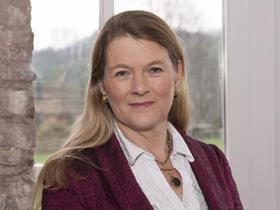
Measures that will grant the Groceries Code Adjudicator (GCA) the power to fine UK supermarkets that have breached the Groceries Supply Code of Practice (GSCOP)have been laid in Parliament.
The adjudicator, currently Christine Tacon, can now impose penalties on the UK's ten largest supermarkets of up to 1 per cent of their annual UK turnover, dependant on the seriousness of the breach. The GCA has published guidance on the principles that will be used to calculate the level of any fine.
These new measures will sit alongside existing powers to issue supermarkets with recommendations as to their future conduct, and to ‘name and shame’ those that have breached the code.
The GSCOP imposes on supermarkets an over-arching principle of fair dealing with their direct suppliers; and includes, among other things, specific provisions governing terms of supply, timing of payments, marketing and promotional costs, and payments as a condition of being a supplier. The code does not govern issues relating to pricing.
Business secretary Vince Cable said: “This important final step will give the GCA the power needed to address the most serious disputes between the large supermarkets and their direct suppliers.
“I created the GCA role to ensure a fair deal for those who supply goods to supermarkets such as farmers and small businesses. I am pleased today to be giving the adjudicator the final element in a set of powers that will give this new body all the tools it needs to succeed in this challenging and important role.”
The GCA role was created in 2013 to enforce the GSCOP that, since 2009, has governed the commercial relationships between the UK’s ten largest supermarkets and their direct suppliers of food, drinks, and a range of household products.
However, the NFU has warned that more needs to be done to protect those farmers and growers not covered within the remit of the GSCOP. These individuals are not direct suppliers to retailers and, therefore, still not protected from unfair trading practices from intermediaries.
NFU food chain adviser Tom Lander, said: “Like any professional business owner, farmers want to operate in a transparent and fair marketplace. This can only occur in a trading environment governed by fair rules and procedures that address imbalances of power in the supply chain.
“While this is good news for those with a direct relationship with retailers. Conversations must now begin on how the code can be extended further up the supply chain. We need to ensure more farmers are protected from unfair trading practices, which strip value out of the supply chain, affecting both producers and consumers.”



